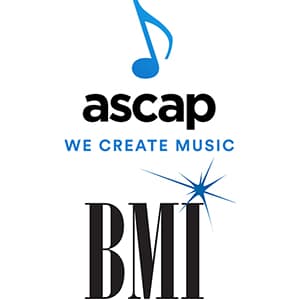
Whether Performance Rights Organizations can or should be able to offer fractional or full licenses has become quite a confusing issue. While BMI states Tuesday’s ruling means business as usual with radio, the NAB is not so sure about that. There’s also a hint from the NAB statement that this ruling may put a damper on the working relationship between the two organizations and it may also result in less airplay of popular songs on the radio.
NAB EVP of Communications Dennis Wharton said the NAB is extremely disappointed with the court’s decision allowing fractional licensing. “If sustained, this decision could disrupt the music licensing marketplace and impede the delivery of music to listeners and viewers, resulting in less airplay of their favorite songs. For decades, NAB and BMI have had a mutually beneficial relationship that has benefited songwriters, broadcasters, and tens of millions of listeners who enjoy hearing their favorite songs on free and local radio and television. We look forwarding to finding common ground with our songwriter friends to continue that partnership.” The only additional step in this process would be for the Department of Justice to take the matter to the Supreme Court.
While BMI says it went to the DOJ three years ago to get the consent decree modernized, the NAB has said that both BMI and ASCAP attempted to weaken the consent decrees. The NAB told its members last month that the DOJ did a thorough multi-year review and rejected the proposed modifications from BMI and ASCAP. The NAB supported that rejection. DOJ interpreted the consent decree to mean for full works or 100% licensing, not fractional licensing. Before the DOJ interpretation, the PRO’s had already been operating with the ability to offer fractional licenses. BMI argues that if there are two collaborators on a song, a full-work license means only one of those songwriters needs to give approval on that song and that’s unfair to the other songwriter. The NAB goes on to say that federal court judge Louis Stanton misinterpreted the consent decree and rejected the DOJ interpretation.
Broadcast attorney John Garziglia says what BMI is doing with fractional licensing will hurt radio. “It would put the onus on radio stations to ascertain whether a work licensed by BMI has the additional possibly multiple consents and licenses in order to be played on the air, rather than putting the onus on itself (BMI) to only hold out as theirs those works that radio stations can safely play without incurring significant copyright infringement liability.” BMI argues this issue is resolved when radio takes a blanket license with every PRO.
Garziglia says before this litigation, radio stations thought they were buying the right to play “songs” from BMI. “They did not think they are buying the right to negotiate with individual songwriters — that is BMI’s bailiwick. In my view, BMI may be lighting the fuse on a sea change in radio music licensing that eventually blows up BMI’s entire business model. If BMI is saying it cannot be relied upon to license the songs it purports to license, then why should there be a statutory blanket license at all?”
Broadcast attorney Frank Montero says upholding fractional licensing will likely be a set back for radio as it further complicates the compliance regime and financial obligation for broadcasters who already pay BMI, ASCAP, SESAC, GMR, and for streaming SoundExchange. “Now they must cope with fractional licensing. The DOJ’s 2016 interpretation ruled that the BMI consent decree called for “full works” or 100% licensing, so broadcasters were only required to obtain a license from one of the songwriters. The District Court overturned that interpretation and this new ruling affirms that. So broadcasters that play songs written by multiple songwriters must obtain a license from all of the songwriters.”
ASCAP CEO Elizabeth Matthews also appears to indicate in her statement about the BMI ruling that it will be business as usual for all involved, and blanket licenses to radio stations will continue. “The Second Circuit’s ruling today is an important victory for music creators across the country. The Court affirms what we have known all along, that the right of public performance allows for the fractional licensing of musical works in our repertories, and the consent decrees do not limit that right. ASCAP and BMI can now continue to offer blanket licenses to our hundreds of thousands of licensees that contain all the shares of works that are in our repertories and the livelihoods of our 650,000 ASCAP songwriter, composer, and publisher members can continue to depend on a strong collective licensing system. ASCAP remains committed to making music licensing more efficient, effective, and transparent for today’s digital music marketplace.”






This ruling will also inspire more rip-off artists like Azoff (GMR) to scoop up fractional rights to songs.
The main composer may be licensing the song through BMI–but if the second guy is working with some other bunch of clowns the blanket license from BMI won’t cover that song.
For radio–will leave an industry where all the stations are owned by big groups. The small owners will be bankrupted by these blood suckers.